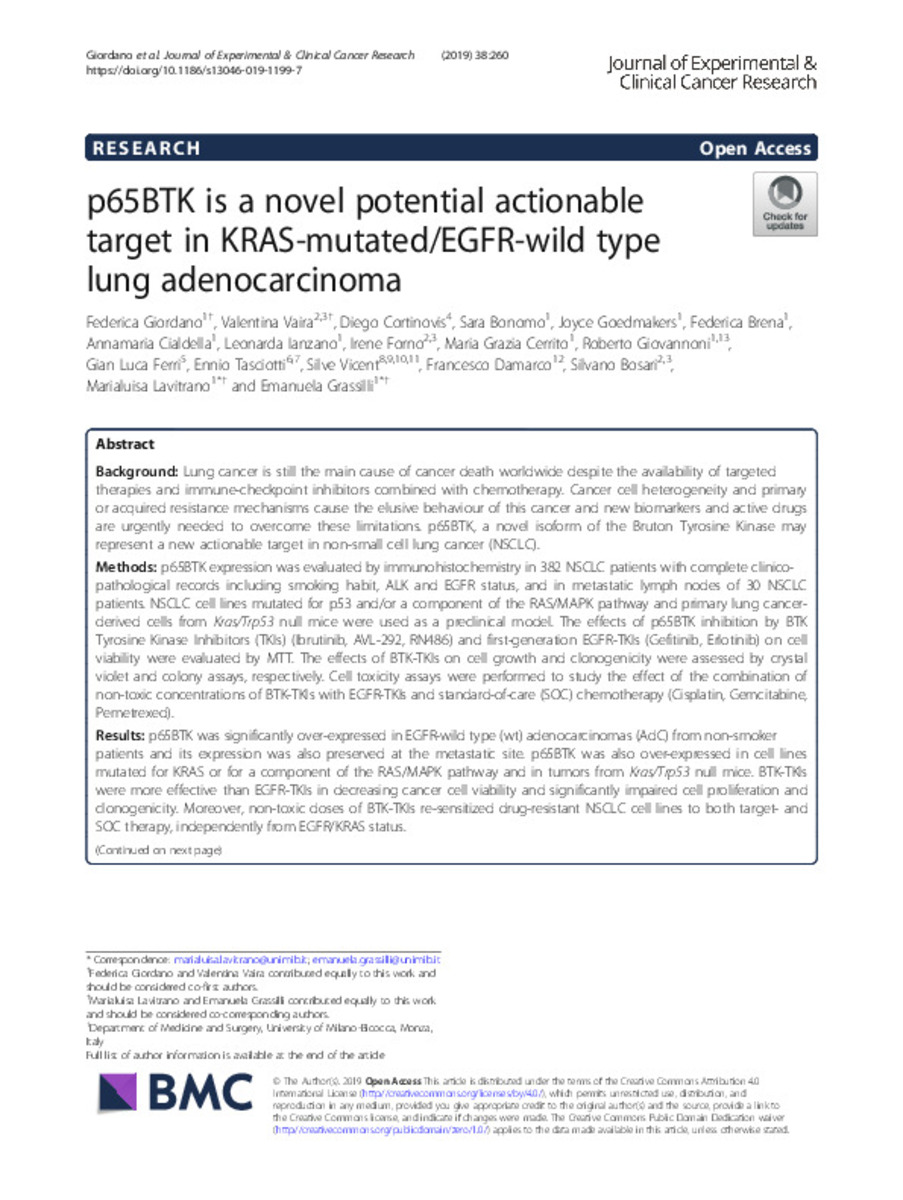p65BTK is a novel potential actionable target in KRAS-mutated/EGFR-wild type lung adenocarcinoma
Palabras clave :
Materias Investigacion::Ciencias de la Salud::Oncología
BTK inhibitors
Chemotherapy
Drug resistance
EGFR
EGFR inhibitors
NSCLC
Targeted therapy
p65BTK
Fecha de publicación :
2019
Editorial :
Springer Science and Business Media LLC
Nota:
This article is distributed under the terms of the Creative Commons Attribution 4.0 International License (http://creativecommons.org/licenses/by/4.0/), which permits unrestricted use, distribution, and reproduction in any medium, provided you give appropriate credit to the original author(s) and the source, provide a link to the Creative Commons license, and indicate if changes were made. The Creative Commons Public Domain Dedication waiver (http://creativecommons.org/publicdomain/zero/1.0/) applies to the data made available in this article, unless otherwise stated.
Cita:
Giordano, F. (Federica); Vaira, V. (Valentina); Cortinovis, D. (Diego); et al. "p65BTK is a novel potential actionable target in KRAS-mutated/EGFR-wild type lung adenocarcinoma". Journal of Experimental & Clinical Cancer Research. 38 (260), 2019, 1 - 16
Aparece en las colecciones:
Estadísticas e impacto
0 citas en

0 citas en

Los ítems de Dadun están protegidos por copyright, con todos los derechos reservados, a menos que se indique lo contrario.







